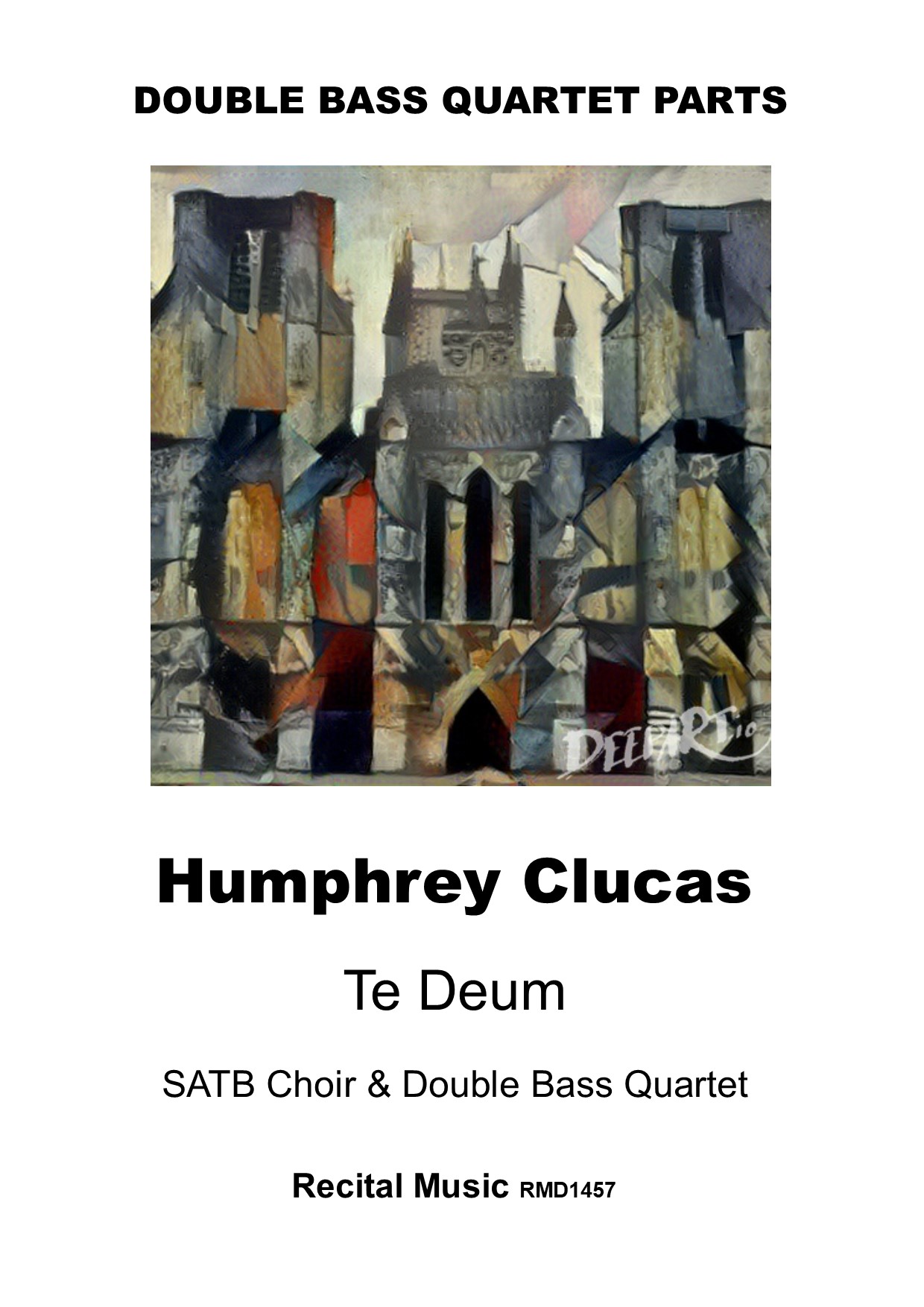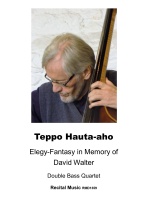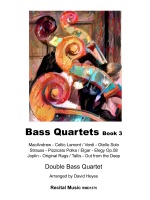Your basket is currently empty!
Te Deum

Description
Te Deum is a unique work of lyrical beauty for SATB choir and Double Bass, Quartet,
also playable with bass octet. The style is …accessible and melodic, offering few
challenges for any performer, but producing a work described as ‘spellbinding’ at its
premiere. The rhythmic and driving bass lines contrast the more chordal and lyrical
choral writing.
“My Te Deum was composed in a response to a suggestion by David Heyes that I
write something a little larger than the Suite which was my only previous work for
double bass. Given the accompaniment, a grand and triumphant treatment of the
text did not seem feasible, and the mood of much of the piece is quite sombre.
Perhaps it takes its cue from the final section of the Te Deum: ‘O Lord, save thy
people…O Lord, have mercy upon us…’ The voice parts are quite straightforward,
and should not tax the average choir. For larger choirs, eight double basses might
create a better balance than four.” [Humphrey Clucas]
Te Deum was premiered on 7 November 1998 at the Garrison Church (Aldershot,
Hampshire) by Voci Cantanti, conducted by Andrew Phillips, with double bassists
David Heyes, Lucy Heath, Anri Adachi and James Clark.
R.R.P £9
Our Price £7.65




